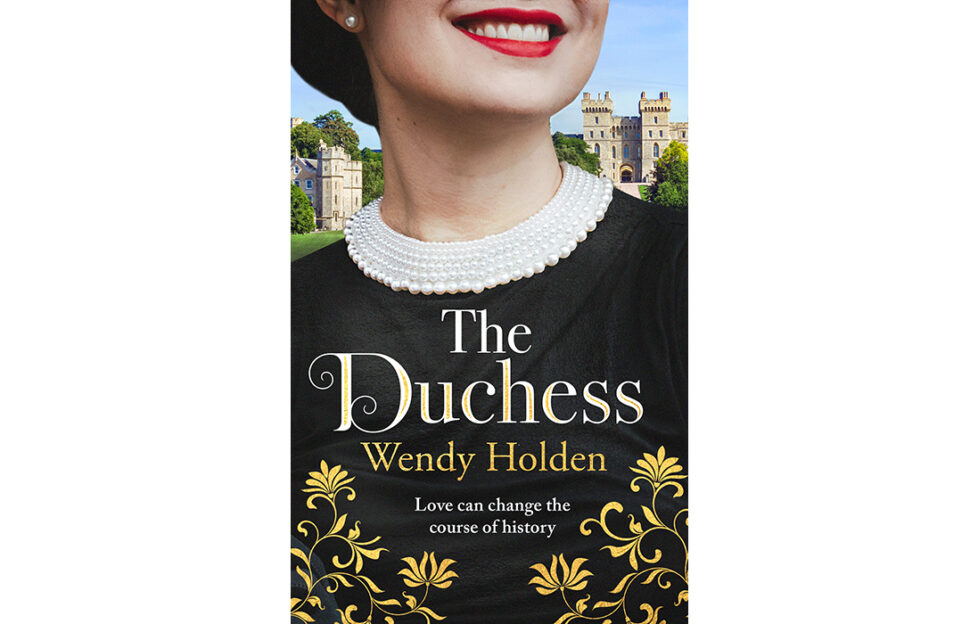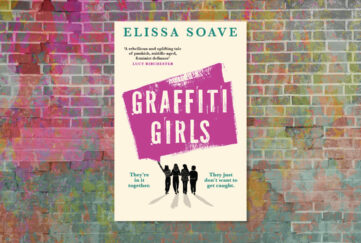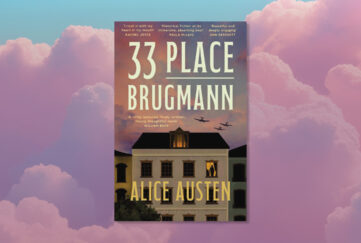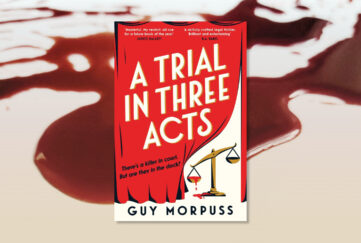The Duchesss | Wendy Holden

REVIEWED BY KAREN BYROM www.karensbookbag.co.uk, @Karensbookbag
“It’s not what you did, it’s what people think you did…”
Wallis Simpson needs no introduction. She’s the American divorcee who ensnared the Prince of Wales with her womanly wiles, forcing him into a marriage that meant he had to give up the British throne for a life in exile, isolated from his royal family and friends.
History has not been kind to her. Her sister-in-law Queen Elizabeth, the Queen Mother, famously referred to her as “that woman”, and she died alone and lonely in her Paris apartment a few years after her husband.
But was Wallis the villain she’s always been portrayed as? This fascinating new fictional account of her romance with the Prince of Wales offers a very different view of the woman who changed the course of royal history.
Brought up in relative poverty by her widowed mother, then married for several years to an abusive man, we first meet Wallis when she’s newly wed to husband Ernest Simpson, and hoping to leave her unhappy past behind her.
The couple move to London, but Wallis is frustrated by their lack of money and connections. Just as she did as a youngster, she feels she is always on the outside, looking in, as the cream of British society, which includes her sister-in-law Maude, go about their social whirl.
When Wallis finally finds an “in” through a meeting with the outrageous Cecil Beaton, she makes the most of the opportunity, and soon she and Ernest find themselves as guests at Belvedere Castle, the Prince of Wales’s private residence near Windsor.
Despite the fact Wallis is married and David has a mistress, their friendship slowly grows into love and the rest, as they say, is history.
Marriage followed…
In 1936, David succeeds to the throne as Edward VIII, abdicating just a few months later so that he can marry Wallis.
The narrative leaves the story there – though we meet the older, widowed Wallis at her husband’s funeral, the 36 long years of their marriage are left to our imagination as the author wisely concentrates on the most romantic and intriguing aspects of this royal love affair.
Through her sympathetic portrayal of their characters, Holden offers a convincing and fascinating new insight into the passions that sparked the abdication crisis.
The brief glimpse into Wallis’s past helps us see and understand what motivates her. Though she loves Ernest deeply, the legacy of poverty and despair left by her earlier life marks out everything she does.
Equally, David has been affected by his upbringing in a royal family ruled by fear. Unloved by his family, no wonder he looks for love in a serial succession of relationships.
It’s always been accepted that Wallis was the manipulative one in the relationship. But here the author tantalises us by comparing her to Anne Boleyn, a woman dazzled by the glamour of monarchy who paid the ultimate price for falling in love with a king.
Did Wallis really want Edward to abdicate for her?
Was Wallis just as much a victim of events as him? There’s no question that their love was real – the couple had a long and outwardly happy marriage, and Holden portrays Wallis’s despair at her husband’s death in 1972 with great sensitivity and poignancy.
Along with Wallis and David’s love story The Duchess also offers a tantalising glimpse of an unmodernised royal family. George V, Queen Mary and the late Queen Mother do not get a good press here – understandable, when seen from Wallis’s point of view – but the two little princesses, Lilibet and Margaret, are utterly charming.
Sadly, though, none will forgive her for what, in the end, was David’s defection, and by the time of her husband’s death, Wallis is still an outsider, looking in, a widow hardly welcome at her own husband’s funeral.
But her dignity, courage and loyalty to the man who chose her over his throne shines through, and we are left with a very different impression of “that woman”.
A wonderfully evocative book, The Duchess truly brings to life not just the real-life heroine of its pages, but the life and times she lived in with descriptions of glamorous society life, and the often grimy reality of life behind the glitz for so many of society’s “crème de la crème”.




